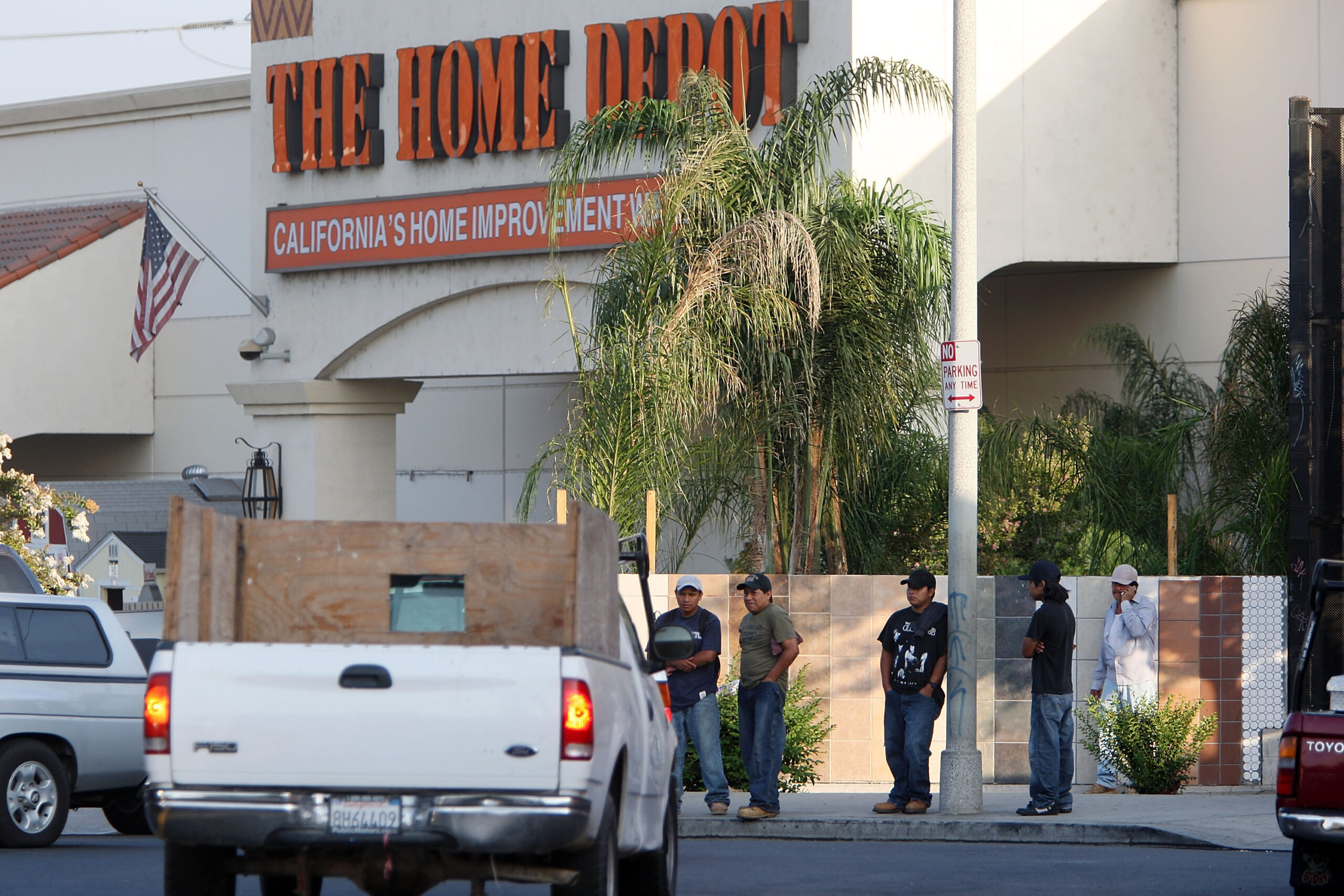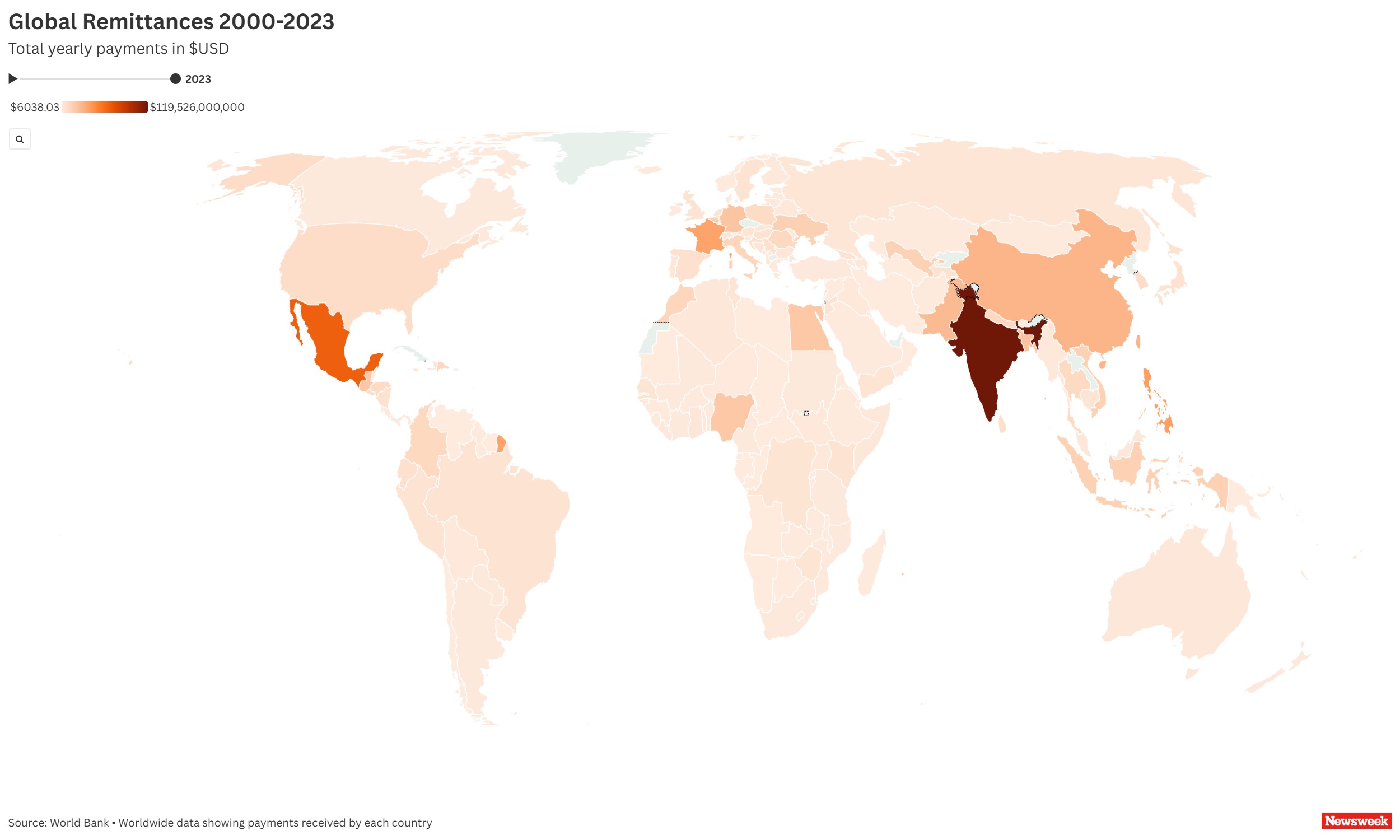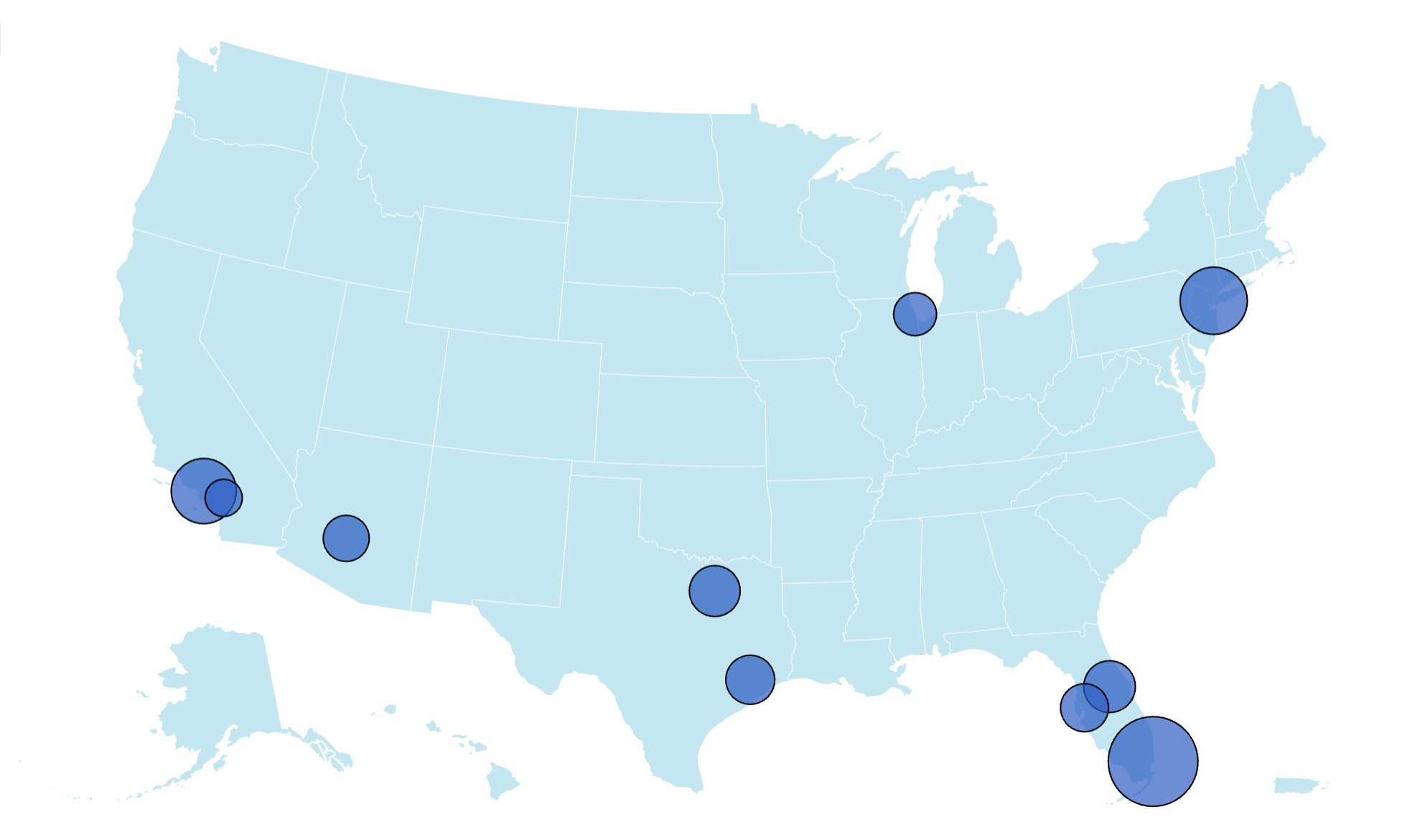
President Donald Trump‘s aggressive immigration crackdown is targeting illegal migrants—not only at airports and border crossings but also in Home Depot parking lots nationwide, putting the retail giant with a history of support for the president in a difficult position.
Scenes of protest and riots that erupted in Los Angeles last week were partly sparked by an unexpected immigration raid on Friday at a Home Depot in the Westlake neighborhood. Dozens were arrested in a coordinated sweep that also hit garment factories downtown and additional Home Depot locations in suburban cities like Paramount and Huntington Park.
The big-box retailer, founded in 1978 and now boasting over 2,300 stores, has long been more than just a place to buy lumber and paint—it’s also been an informal hiring hub for day laborers, many of them undocumented. The parking lots of Home Depot stores around the country have functioned, for decades, as sites where homeowners and contractors can connect with available laborers for their immediate needs, no resume required.
That unofficial relationship has now collided with federal immigration policy.

Chip Somodevilla/Getty Images
Senior White House adviser Stephen Miller, the architect of President Trump’s immigration strategy, has explicitly ordered ICE to target informal labor gathering points such as Home Depot and 7-Eleven. “Why aren’t you at Home Depot?” Miller reportedly asked ICE leadership in a Washington meeting last month, frustrated that arrests weren’t meeting daily targets.
Over the weekend, the consequences of those orders were visible across Los Angeles. In Paramount, anti-ICE protesters clashed with sheriff’s deputies as raids unfolded. In Huntington Park, a predominantly Latino suburb, raids resumed Monday morning. And in Westlake, witnesses described a chaotic scene as agents detained workers while others fled.
The raids are also having an economic impact, as frequent enforcement at Home Depot locations may be driving away customers. On Tuesday in northern New Jersey, the Wall Street Journal reported far fewer workers showed up for contractors than a few months ago. At two Home Depot stores in Los Angeles, store security kept the few men who did come confined to the public sidewalks. And at three stores around Houston, no laborers were seen at all.
“Even workers who I know have legal status were running,” said Jorge Nicolás, a senior organizer at the Central American Resource Center, or CARECEN, in an interview with the Los Angeles Times. “We felt powerless.”
‘We are not involved’

Getty Images
The sudden visibility of the immigration raids, combined with Miller’s comments, has placed Home Depot at the center of a public controversy—one in which the company has denied any involvement.
“We’re not notified when raids are going to happen, and we are not involved in the operations,” said Margaret Smith, a spokesperson for Home Depot, in a statement to Newsweek.
Smith said Home Depot instructs its employees not to engage with ICE activity and to report any incidents to management. She added that workers who feel uncomfortable after witnessing immigration actions near the stores are given the option to go home for the day and still receive pay.
“When ICE arrives at a parking lot or outside one of our stores, we ask our associates to report it immediately, not engage with the activity, and if associates feel uncomfortable after witnessing ICE activity, we offer associates the option to go home for the day with pay.”
However, critics of the company have long argued that this falls short, given the company’s history and its often-contentious relationship with workers—drawing criticism from both pro- and anti-immigrant groups.
It also raises questions about its ties with the administration.

Erik Lesser/Liaison via Getty
Bernie Marcus, the company’s co-founder and former chairman, was one of Donald Trump’s earliest and most vocal financial backers, donating more than $14 million to support his 2016 campaign and related political efforts. Though Marcus retired from the company in 2002 and died last November — one day before the election — at the age of 95, his longtime status as a GOP megadonor sparked previous boycott calls and continue to shape perceptions of the company’s political alignment.
Ken Langone, another Home Depot co-founder, has had a more complex relationship with Trump. Initially critical, Langone expressed renewed support for Trump in 2024, praising his resilience following the assassination attempt in Butler, Penn. and suggesting it could solidify the president’s place in history.
Home Depot has long worked to distance itself from the personal politics of its founders. “His views do not represent the company,” a spokesperson said of Marcus during the 2019 backlash.
The company also stresses that it does not endorse presidential candidates. But its political action committee has made substantial donations to Republican causes. In the 2024 election cycle, Home Depot contributed $1 million to the School Freedom Fund and $220,151 to the National Republican Congressional Committee. Another $143,569 was directed to Trump’s campaign, according to OpenSecrets.
In the current political climate, those past connections and donations have resurfaced amid a public reckoning over what some progressives say is a theme in corporate America of complicity and silence surrounding the most controversial policies of the Trump administration.
Despite Home Depot’s claims of noninvolvement, the recurring presence of ICE near its stores continues to draw national attention. The raids come at a time when the company is already under financial pressure, largely related to Trump’s on-again, off-again tariff policies. First-quarter earnings dipped slightly from a year earlier, and shares fell after news of the raids broke. Analysts have warned that if public protests and customer anxiety persist, the company could face both reputational and operational fallout.





